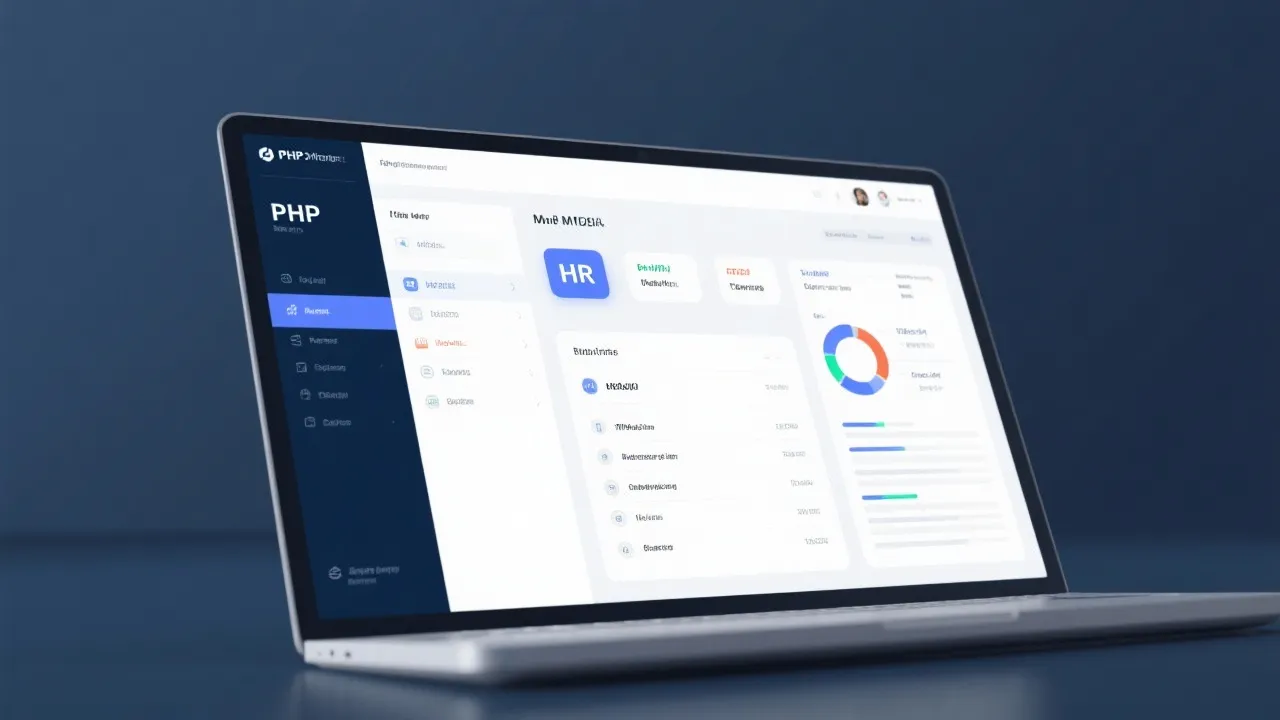Open Source Human Resource Management Systems using PHP and MySQL offer scalable solutions for organizations seeking cost-efficient and customizable software. These systems empower businesses by facilitating core HR functions like personnel tracking, payroll, and benefits management. By utilizing open-source coding, organizations can tailor the system to meet their specific needs, ensuring flexibility and ongoing innovation.

As businesses strive for efficiency and adaptability, implementing an effective Human Resource Management System (HRMS) becomes critical. Open Source Human Resource Management Systems using PHP and MySQL provide scalable, customizable solutions for managing HR operations. These systems cover a range of functionalities, including recruitment, payroll processing, benefits management, and compliance with labor laws, all while allowing businesses to alter the system's code to fit their specific needs. Over the years, the approach to HR management has significantly transformed, transitioning from manual processes to digital solutions that offer a comprehensive and cohesive view of workforce management. The importance of an open-source solution lies in its ability to not only meet current HR demands but also evolve in response to future business challenges.
Open Source HR Management Systems are increasingly popular due to their flexibility and cost-effectiveness. Unlike proprietary solutions, open-source systems allow businesses to modify and expand functionality without licensing costs. Moreover, using widely-adopted technologies like PHP and MySQL ensures that organizations can find ample support and resources to maintain and develop their systems. Open-source systems empower organizations with direct control over the software, allowing them to optimize performance, tailor features, and manage operational efficiencies. The collaborative nature of open-source software also fosters a community of developers and users who contribute enhancements, troubleshoot problems, and share best practices across diverse business environments, thus driving continuous improvement and innovation within HR systems.
At the heart of these systems is a robust set of features designed to streamline HR processes:
| Software | Features | Community Support |
|---|---|---|
| OrangeHRM | Personnel management, time tracking, and reporting tools. Offers additional plugins for payroll processing and recruitment features. | Large community, extensive documentation. Regularly updated with user-generated plugins. |
| openDCIM | Resources management, customizable dashboards, ticket management for IT support. | Active developer community, regular updates. Users can contribute to enhancements through GitHub. |
| Odoo HR | Open-source suite offering integrated HR modules, timesheets, recruitment, and onboarding management. | Strong community support with a wealth of online resources, including forums and documentation. |
| Zenbership | Membership management tailored for organizations needing specific member management features. | Support available through the community forums and detailed documentation. |
While open-source HR systems present cost savings and customization benefits, they also require technical expertise for setup and maintenance. Organizations should have skilled IT staff or partners to manage the software effectively. Additionally, ensuring data security and compliance is crucial, which may necessitate additional security measures, such as regular software updates and data encryption protocols. Data privacy regulations such as GDPR and HIPAA can significantly impact how employee data is collected, stored, and processed within an open-source HR system. Organizations must apply best practices for data handling and conduct routine audits to ensure adherence to these legal requirements.
Furthermore, businesses should prepare for potential integration challenges when connecting HR systems with other operational tools such as accounting software, customer relationship management (CRM) systems, or productivity applications. Emphasizing comprehensive training and fostering a culture of flexibility when adapting to new software can help businesses alleviate resistance and enhance overall user experience.
Open source solutions will continue to evolve with emerging technologies like artificial intelligence (AI) and machine learning (ML), making HR systems more intelligent and predictive. For example, AI-driven analytics can assist HR professionals in identifying workforce trends, performance insights, and potential bottlenecks. Machine learning algorithms can optimize recruitment processes by automatically screening resumes and suggesting suitable candidates based on historical hiring data.
The integration of natural language processing (NLP) could lead to improved employee interactions, as virtual HR assistants become commonplace for addressing employee inquiries or guiding them through HR processes. Additionally, as organizations increasingly adopt remote working models, open-source HR systems that offer flexible, cloud-based solutions will be in high demand, allowing for real-time access to HR functions from anywhere globally. This ongoing innovation mirrors the larger shift towards digital transformation in the workplace, promising further enhancements in efficiency, employee satisfaction, and engagement.
In summary, open-source HR Management Systems built on PHP and MySQL offer a potent combination of flexibility, cost-effectiveness, and scalability. By understanding their features and following a systematic implementation approach, organizations can ensure they maximize the potential of such systems while navigating associated challenges. As businesses continue to evolve, the ability to adapt HR solutions to meet both current and future needs will be vital in maintaining competitive advantages and fostering a motivated workforce.
As the landscape of human resources continues to evolve, organizations that adopt flexible and innovative solutions will be well-positioned to meet future challenges effectively. By selecting the right open-source HR management system and focusing on best practices in implementation and support, businesses can achieve a competitive edge in managing their most critical asset – their people.
Explore the Tranquil Bliss of Idyllic Rural Retreats

Ultimate Countdown: The 20 Very Legendary Gaming Consoles Ever!

Understanding Halpin and its Influence

Affordable Full Mouth Dental Implants Near You

Discovering Springdale Estates

Illinois Dentatrust: Comprehensive Overview

Embark on Effortless Adventures: Unveiling the Top in Adventures Made Easy Outdoor Equipment

Unveiling Ossur Valves: Innovation in Prosthetics

Unlock the Full Potential of Your RAM 1500: Master the Art of Efficient Towing!
